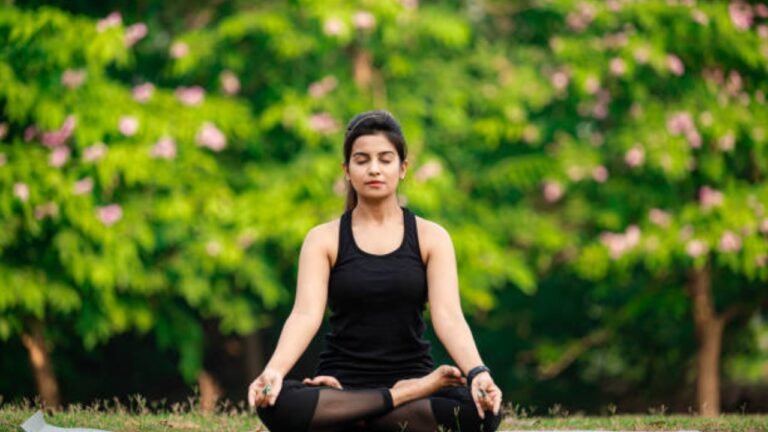Embracing Mindfulness: The Path to PeaceMindfulness is the foundation of mental health. It teaches us to recognize and be present with our thoughts and feelings without judgement. Meditation, the practice of developing mindfulness, can be as simple as focusing on your breathing for a few minutes each day. This act may seem trivial, but it can significantly reduce stress and increase your overall sense of well-being.
Gentle yoga asanas to relieve stressYoga comes in its myriad forms and offers something for everyone. Here are some asanas designed to reduce stress that are suitable for beginners and experts alike.
- Child’s pose (balasana): A grounding posture that promotes relaxation. Kneel on your mat, bend forward, and extend your arms. Make sure your forehead touches the ground. This pose calms the nervous system.
- Cat and Cow Stretch (Marjariyasana – Vitirasana): Increases flexibility of the spine and relieves tension. Get on all fours, inhale as you arch your back (cow), and exhale as you arch your back (cat). This movement promotes emotional balance.
- Legs up against the wall pose (Viparita Karani): A calming recovery posture. Sit near a wall, lie on your back and stretch your legs over the wall. This pose reduces anxiety and improves sleep.
- Seated forward bend (paschimottanasana): Stretch your spine and reduce stress. Sit with your legs stretched out and bend forward as you inhale and exhale. This asana calms her mind and relieves her depression.
- Corpse Pose (Savasana): The ultimate relaxing pose. Lie on your back and spread your arms and legs comfortably. Close your eyes and take a deep breath. Savasana reduces stress and promotes a calm mind.
Adopt breathing techniquesPranayama, or yogic breathing techniques, is a powerful tool for managing stress. Simple techniques like deep abdominal breathing can be deeply calming. Another effective method is the 4-7-8 technique. Inhale for 4 seconds, hold for 7 seconds, and exhale for 8 seconds. These exercises will lower your stress levels and improve your mental clarity.
Expanding
Creating a routineConsistency is key. Make a specific time for yoga or meditation each day. Even just a few minutes can make a difference. Morning sessions can energize and set a positive tone for the day, while evening exercises can help you relax and prepare for a restful sleep.
Foster a supportive environmentEnvironment plays an important role. Choose a quiet, comfortable space to practice. You can add elements like soft lighting and calming music to enhance the atmosphere. This setting makes your practice more enjoyable and effective.
value patience and self-compassionProgress in yoga and meditation is gradual. Be patient and kind to yourself. Remember, it’s not about perfection, it’s about a journey towards happiness. Celebrate the small victories and stay committed to your practice.
Connect with the communityJoining a yoga or meditation group can provide support and motivation. Sharing experiences and challenges with others walking the same path is incredibly encouraging. Many communities exist online and in person to provide a sense of belonging and encouragement.
seek professional guidanceAlthough yoga and meditation are generally safe, we recommend that you consult your health care provider, especially if you have specific health concerns. Experts recommend modifications to make the practice profitable and enjoyable.
road aheadAs we head into 2024, the importance of mental health cannot be overstated. Yoga and meditation stand out as accessible and effective tools for boosting mental health. By incorporating these habits into our daily lives, we can navigate the complexities of the modern world with grace and resilience.
At its core, yoga and meditation are more than just exercises. They are a way of life. They teach us to live in harmony with ourselves and the world around us. As we embrace these practices, we embark on a transformational journey from stress to peace and cultivate a healthier and happier existence for ourselves and those around us.
Make this the year you prioritize your mental health and explore the depths of yoga and meditation. By doing so, we can open the door to a balanced, peaceful and fulfilling life.
(Author: Dr. Indranil Basu Ray, cardiac electrophysiologist and professor of cardiology and public health based in Memphis, Tennessee, USA. Founder and President of the American Academy of Yoga Medicine)


